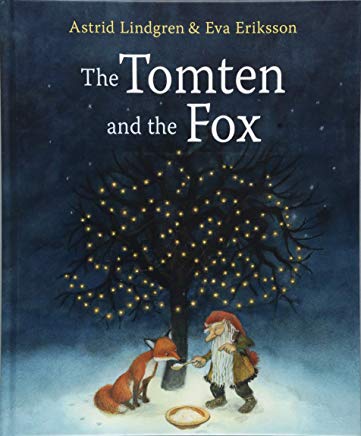The Blog
Blog Entry
Creep Silently

In this season of sleepy, inscrutable landscapes, and chestnuts roasting on the open fire, and runaway suicide percentages, when the night-time often stretches from the end of one lunch to preparations for the next, and a big day out in the snow usually lasts about an hour, and somebody’s always losing a mitten, and catching a fever, and asking what time it is right up until the minute hot chocolate is being served, and the feeling has returned to their extremities, and the sting of an ice chunk is finally dispersing beneath a rosy warm welt and layers of revisionist storytelling – in this season that we are forever recalling with a fondness probably better understood as an evolutionary imperative, let us consider at least one of the medieval myths which has been helping children (and probably some grown-ups as well) sleep a little sounder since long before anyone was ever dreaming of sugar plums and sliding down chimneys, which always, frankly, made me a little anxious. I mean, why couldn’t he just leave everything on the porch?
There’s scarcely a suspicious bumping, or rustling, or really any kind of announcement to prepare us for an elfin arrival in The Tomten and the Fox. In fact, the children playing in the cottage and the mother cooking at the stove are probably only aware of the Tomten in the abstract: this legend has roots many hundreds of years deep, in Finland, in Denmark, in Norway, and though here is a comparatively recent Swedish iteration, you have to marvel at its continuing hold on the imagination in an age when satellite surveillance of even the remotest of backwaters is a gleam in some developer’s eye. Here’s hoping some pockets will always remain a little impenetrable – marine abysses, the bottoms of volcanoes, ends of arctic roads – so that we may continue to populate their putative barrenness with guardian angels.
As for the Tomten, he has been variously imagined as hairy and hairless, four-fingered, one-eyed, poisonous, peevish, benevolent, several inches tall or a shape-shifter capable of assuming the dimensions of an extra-large man – but he was always a bit of a stickler about the ancient order of things, indeed some stories identify him as the soul of the original inhabitant of the farm. So no swearing, no peeing in the stables, but above all, no mistreatment of the animals.
Meanwhile, here was a hedge against chaos – how else could it be that agricultural outposts were not routinely descending into Darwinian nastiness during all of those months the farmers were snowed in, consuming pickled things? For his services, the Tomten expected only a bowl of porridge left out now and again as tribute, more than anything he actually needed to eat. It’s a prowling, carnivorous Wild Thing whom he shares it with here – part brother, part nemesis – and from all of this timeless mingling of hunger, duty and incurable generosity, I suddenly cannot imagine a more evocative outcome than the fox returning through the forest to his den. Is he sated? We’ll see. Happy holidays, everyone, safe traveling and sweet dreams. Do you know where your chickens are?

